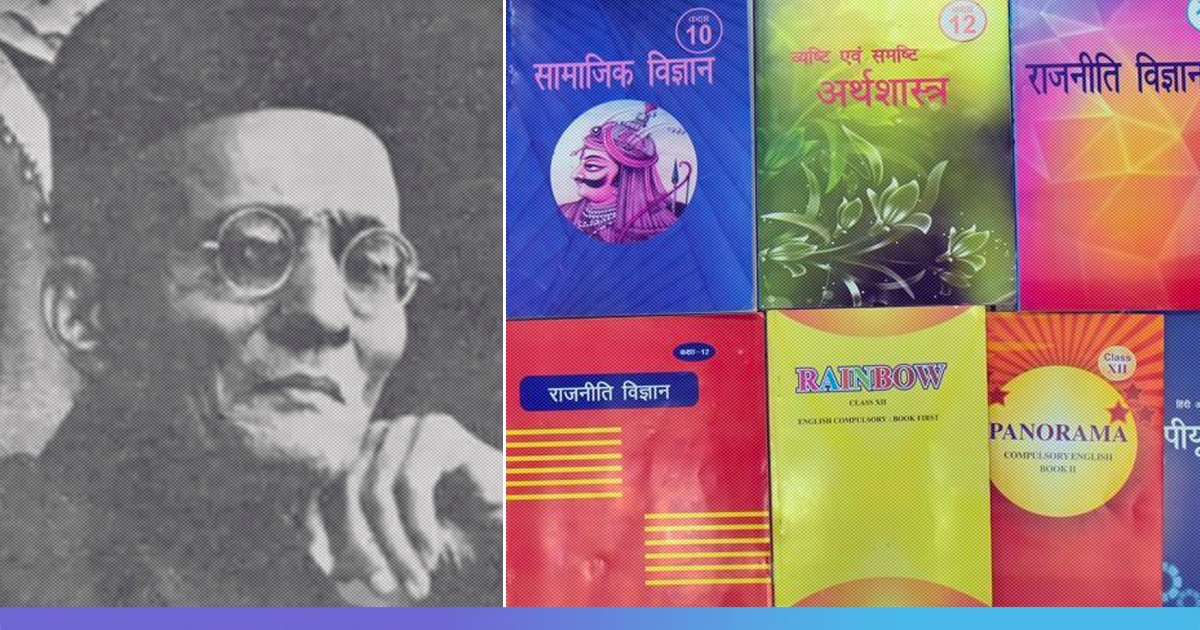With the committee constituted by Congress government making several revisions to the Rajasthan Board textbooks within a few months, it is clear that political interference in education is far from being over.
Reportedly, the Rajasthan Board textbooks have been changed thrice in the last eight years. This points to an issue deeper than “accuracy” and “relevance” of the curriculum, which the committee cited as reasons for the recent changes.
In a conversation with The Logical Indian, Prof. T.V. Kattimani who was a part of the drafting team for the New Education Policy, 2019, expressed his displeasure with the frequent changes: “The constant meddling of politics into the education system defeats the whole purpose of education itself…Designing a curriculum requires a lot of care and research. It should be left to the experienced academicians and educationists, not to politicians trying to forward their agenda.”
The Changes And The Controversy
Among the many changes that the new government made, the most debated one deals with the issue of representation of the freedom fighter Savarkar.
While there are many contrasting narratives surrounding Savarkar’s role in India’s independence struggle, he was nonetheless a recognized activist, lawyer, politician, and writer. He is also known to have expanded on and popularized the concept of “Hindutva”.
In the revision, the committee removed the prefix ‘Veer’ from Savarkar’s name and significantly changed the biographical section under his name.
The committee omitted the first paragraph that portrayed Savarkar as a prominent leader. Further, it focused on “facts” such as him (allegedly) claiming to be “the son of Portugal” in his mercy petition to the British government, and him being accused of conspiring for the murder of Mahatma Gandhi.
Controversy broke out after the changes were made public, with leaders from the BJP and the Congress giving statements across media.
The current Education Minister of Rajasthan Govind Singh Dotasara said that the changes were an attempt to “remove the distortions” from the facts which “forced the ideology of the previous government.”
He further added that it was done to “ensure that the contributions of all leaders including Mahatma Gandhi and Jawaharlal Nehru are rightly reflected in the textbooks.”
In reply, former Education Minister Vasudev Devnani said that “the Congress has always eulogized one family and ignored the history of other freedom fighters. It is a party that has been against Hindutva…It is now trying to present distorted facts about a brave freedom fighter who has been associated with Hindutva.”
वीर सावरकर के वीर होने पर प्रश्न चिन्ह लगाने वाली कांग्रेस सरकार को अपनी पूर्व प्रधानमंत्री इंदिरा गाँधी का इतिहास पढ़ना चाहिए ! इंदिरा सरकार ने 1970 में उन पर डाक टिकट जारी कर स्वतन्त्रता आंदोलन में योगदान एव देशभक्ति की प्रशंसा की थी । @BJP4India @BJP4Rajasthan @Ramlal pic.twitter.com/qHjehhdHBU
— Vasudev Devnani (@VasudevDevnani) May 27, 2019
Political Meddling In Education
“Education plays an important role in forming a child’s worldview. It has to be holistic in nature, and not politically motivated. Politics should strictly be kept out when it comes to designing the education curriculum,” Prof. Kattimani said.
Echoing similar thoughts, Rashmi Jain, Associate Professor with the Department of Sociology in the University of Rajasthan, said in her statement, “in higher education, we don’t teach anything that is not substantive. When facts are being studied, they cannot and should not be changed as per the changing governments. There are things that are based on prospective analysis, and understanding…When things are changed based on ideology, the attempt is to glorify one and put down another, which is not appreciated.”
For more than two decades, several studies have highlighted the importance of curriculum in a child’s development. Which further led to studies that indicated the immense care and research with which curriculum must be revised.
Moreover, curriculum design and content have also been shown to have an impact on a teacher’s performance.
Expressing his views on the matter of frequent, and politically motivated, textbook revisions, Professor Avijit Pathak from Jawaharlal Nehru University wrote, “This is like seeing knowledge as an act of consumption rather than an experience of enchantment or creative engagement with the self and the world; and it is dangerous. It kills the joy of learning.”
He further writes, “…all this ensures our children grow up in an environment that is pedagogically impoverished and aesthetically insensitive…nothing leaves a lasting imprint. Everything is just a piece of information to be remembered, and then forgotten after the examinations.”
Also Read: Caste Struggle, Growth Of Capitalism Removed By NCERT From Class IX History Books











